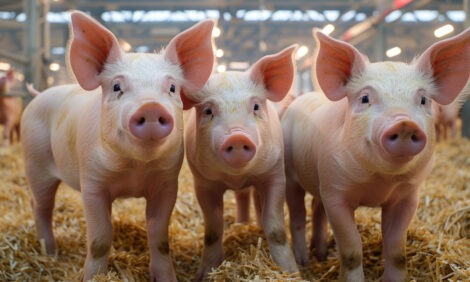



The "success" of the Danish Swine Antibiotics Ban
This article provides information on experiences following the ban in Denmark on the use of antibiotics to promote the growth of farm animals. At the International Conference on Emerging Infectious Diseases, Henrik Wegener, Danish Zoonosis Institute, Denmark presented a paper titled: Integrated Surveillance and Control of Emerging Foodborne Diseases — The Successful Danish Experience. This presentation was subsequently the subject of an article in The Washington Post Newspaper.
We provide links to both the Web cast of Henrik Wegener's presentation (approx. 35 minutes)) and The Washington Post article.
To listen to and view the slides (Real Audio web cast) from Dr Wegener's presentation Click Here
The Washington Post Article on the talk
A recent ban in Denmark on the use of antibiotics to promote the growth of farm animals has markedly decreased the prevalence of drug-resistant bacteria but has not affected the health of the animals or the price of meat, a Danish scientist told infectious disease researchers and public health officials here.
Farmers now spend somewhat more to feed their animals, but that is offset by what they save from not spending on tons of antibiotics for entire herds and flocks, said Henrik C. Wegener of the Danish Veterinary Institute in Copenhagen.
"If the effects are so marginal, why on earth continue using them?" he asked rhetorically.
To read the full article in The Washington Post Click Here
| Integrated Surveillance & Control of Emerging Foodborne Diseases: The Successful Danish Experience |
To listen to and view the slides (Real Audio web cast) from Dr Wegener's presentation Click Here
| Gains From Danish Antibiotic Ban Noted |
The Washington Post Article on the talk
A recent ban in Denmark on the use of antibiotics to promote the growth of farm animals has markedly decreased the prevalence of drug-resistant bacteria but has not affected the health of the animals or the price of meat, a Danish scientist told infectious disease researchers and public health officials here.
Farmers now spend somewhat more to feed their animals, but that is offset by what they save from not spending on tons of antibiotics for entire herds and flocks, said Henrik C. Wegener of the Danish Veterinary Institute in Copenhagen.
"If the effects are so marginal, why on earth continue using them?" he asked rhetorically.
To read the full article in The Washington Post Click Here








